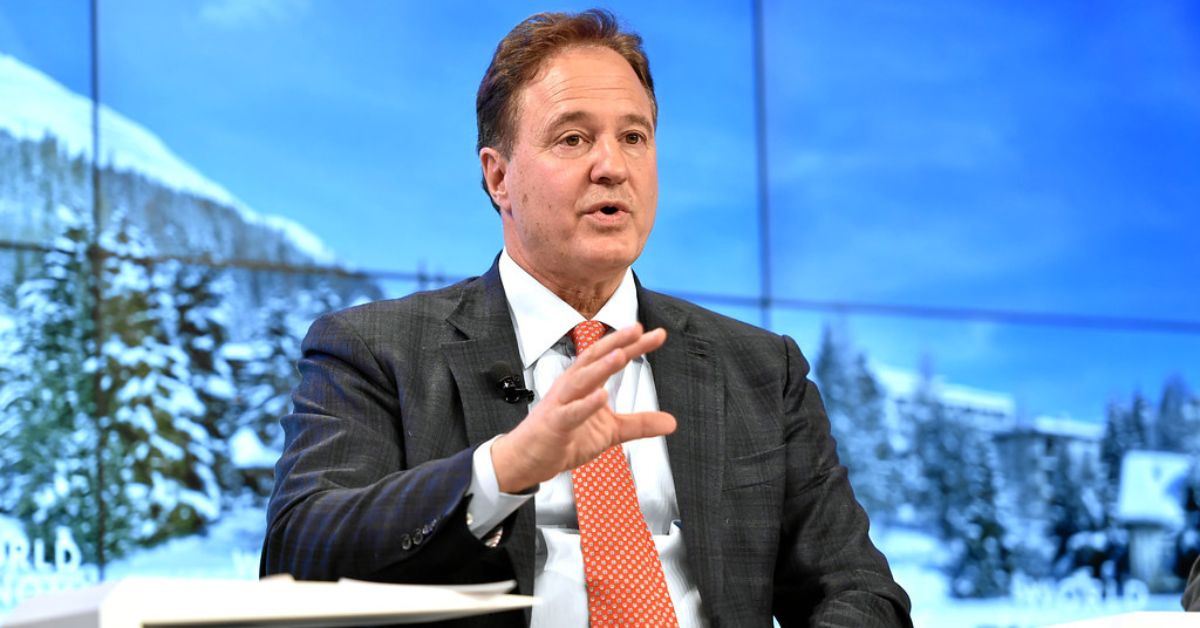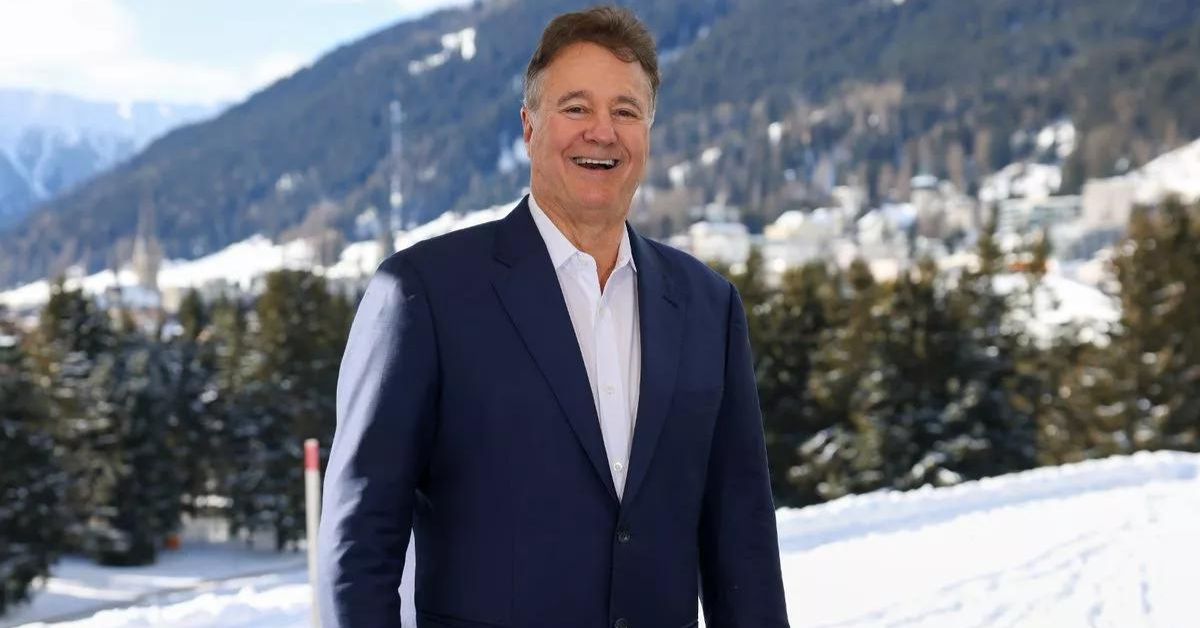DAVOS — In the bustling corridors of Davos 2024, amidst a gathering of global leaders and thinkers, stood Stephen Pagliuca, a figure synonymous with expertise and innovation in the investment world. As a Senior Advisor at Bain Capital, Pagliuca’s presence at the conference was not just ceremonial; it was a testament to his deep understanding of the intricate tapestry of global markets and investment strategies. With a career distinguished by shrewd investments and strategic foresight, he has become a respected voice in discussions about the global economy, technological advancements, and evolving investment trends.
In his 19th appearance at the prestigious Davos conference, Pagliuca offered insights that are both profound and prescient. His perspectives span a wide array of critical issues that the world grapples with today – from the geopolitical tensions in Ukraine and Taiwan to the burgeoning realm of artificial intelligence and its far-reaching implications. His views not only reflect a deep understanding of current global affairs but also shed light on the future trajectories of investment and economic growth.
In this exclusive interview, Stephen Pagliuca delves into these topics and more, providing a comprehensive overview of the current state of global affairs. His analysis touches upon the transformative potential of AI, the balancing act of regulation, the bright spots and concerns in global markets, and the dynamic evolution of the sports industry as an investment haven. Each response is a window into the mind of a seasoned veteran, offering valuable insights into the complexities of our rapidly changing world.
Excerpts:
Q: What’s the sense that you’re getting here at Davos 2024?
A: This is probably the most active and buzz-filled Davos I’ve attended, and it’s my 19th one. It’s incredibly busy, more so than any I’ve been to before.
Q: What exactly is keeping it so busy? What is the main focus this year?
A: We’re discussing some huge global topics like the war in Ukraine, Taiwan, China, and notably, the advent of AI. There’s a very large focus on AI and its global impact.
AI is in its early stages… it’s a long-term external trend that will enhance productivity globally and revolutionize the way we work.
Stephen Pagliuca, Senior Advisor at Bain Capital
Q: What do you think of AI and its global impact? Is it just hype or something more substantial?
A: AI is in its early stages and will have its ups and downs. While there’s some hype, I believe it’s a long-term external trend that will enhance productivity globally and revolutionize the way we work. Combined with robotics, it’s going to impact even blue-collar jobs, similar to the internet’s impact around 1999-2000. AI is just an incredibly sophisticated tool. Just as the Internet was to communications and connection, AI is another turbocharged tool that’s going to improve productivity, enhance human knowledge, and allow us to do things in different and better ways. Obviously, the risk with anything, like with a nuclear bomb or the Internet, is that bad actors can do bad things with it.
Q: On the question of AI regulation, do you think we risk repeating the mistakes made with cryptocurrencies?
A: AI, like nuclear weapons, should have a global standard to prevent misuse. I hope countries can harmonize regulations without stifling innovation. It’s about finding a balance – too much regulation could hamper AI’s value, while too little could let it cause problems.
Q: Which global markets do you see as bright spots, and which are concerning?
A: I think the US continues to be a bright spot due to its self-sufficiency in oil, low unemployment, and strong economy. South America is growing through resource exploitation. Long-term, Africa, with its burgeoning population and growing investment from China and the US, is a market to watch.
The US continues to be a bright spot due to its self-sufficiency in oil, low unemployment, and strong economy.
Stephen Pagliuca, Senior Advisor at Bain Capital
Q: Is Africa at risk of another cycle of exploitation?
A: I think Africa has to take responsibility for managing its resources in a responsible way. If African countries can establish the rule of law and fair economic systems, they have significant room to grow and many upsides. If they can’t, they will experience fits and starts.
Q: And as a company, what’s Bain Capital’s focus?
A: At Bain Capital, we focus on the value of specific companies or ideas, regardless of industry or geography. Our aim is to find products and management teams with long-term growth potential. We prioritize strategic growth over cost-cutting in our investments.
Q: What about your investments in the sports industry? How do you see that evolving?
A: The sports industry has experienced massive growth due to its content value. Real-time sports remain a constant draw amid a fragmenting media landscape, leading to increased valuations in various sports clubs. I foresee continued growth in this sector.

Q: You have investments in the sports industry. How do you see that developing?
A: Yes, we’ve seen massive growth in audience content. David Stern used to say, “Content is king in the NBA,” and that holds true. As the media landscape fragments with streaming, bundling, and unbundling, the one constant is people’s love for watching real-time sports. This has led to massive increases in the valuation of football, soccer, baseball, and basketball teams. I’ve been fortunate to have invested in the Celtics 20 years ago and in Atalanta in Milan. Both are storied clubs and are doing well. I think there’s going to be more growth because when content providers want to aggregate eyeballs for networks, sports are the top product.
Sports will be a growth industry for the next 20 years.
Stephen Pagliuca, Senior Advisor at Bain Capital
Q: Are you looking at other opportunities in different geographies?
A: Absolutely. My group, Pags Group, specializes in this, and we’re looking at more football clubs and different kinds of opportunities because I believe sports will be a growth industry for the next 20 years. We’re only in the middle phase of it.
Q: The GCC has been investing quite a lot in sports, namely Saudi Arabia and the UAE. Are you also looking at opportunities in these countries?
A: I’ve talked to people about it and need to learn more. Certainly, they’re changing the landscape, and while some people view this negatively, I think it’s positive. The more investment there is in sports, the better the quality of sports will be. So, having that money flow into sports, creating new leagues, and providing new opportunities for players, in my opinion, is a good thing.








